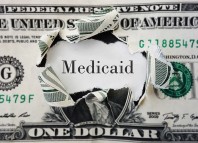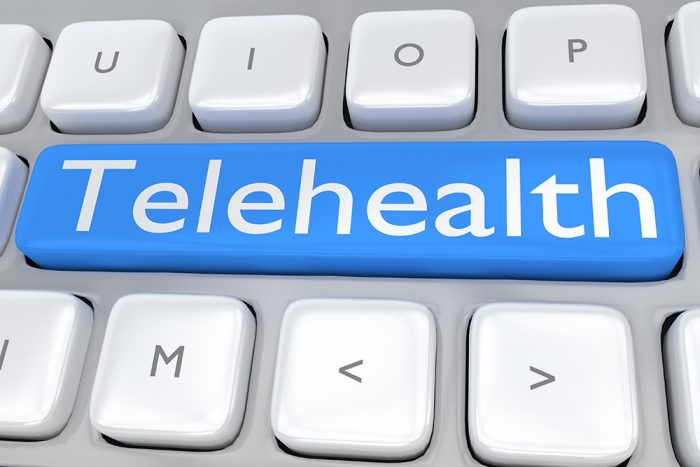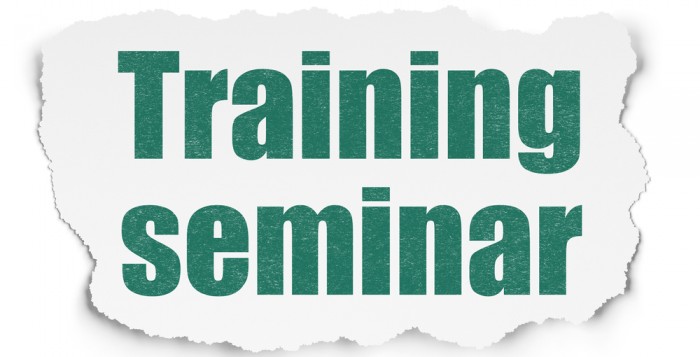Office of Vocational Rehabilitation and Bureau of Special Education Memorandum of Understanding

Shannon Austin, MS, Executive Director of Office of Vocational Rehabilitation (OVR) and Carole L. Clancy, Bureau Director of Special Education have announced completion of a revised Memorandum of Understanding (MOU). The revision of the MOU is a product of ongoing collaboration between both agencies to strengthen agency partnership and enhance transition outcomes for students with disabilities in the Commonwealth.
Additionally, there will be a series of webinars in April and May: Understanding the Memorandum: OVR and BSE Working Together as One. This series will overview the MOU agreement between OVR and the Bureau of Special Education (BSE), pertaining to the provision of transition services for students with disabilities. Throughout the series, participants will be introduced to tools for collaboration between OVR, BSE, Local Education Agencies (LEAs), youth, and families.
What’s the Big Deal About Trauma?
Registration is required for this FREE event:
Thursday, April 22, 2021 from 2:30 pm to 4:00 pm
PA Care Partnership is offering a free webinar: What’s the Big Deal about Trauma? Many organizations today are under a lot of pressure to become trauma-informed. Both professionals and parents are hearing about the importance of recognizing – as well as preventing – trauma from happening to the children in their lives. These demands can be a source of confusion: what does being trauma-informed mean? Why is it so important? What is trauma about, anyway?
You are invited to attend this webinar, which will feature Dr. Sandra Bloom, author of Creating Sanctuary: Toward the Evolution of Sane Societies, and Diane Wagenhals, Program Director for the Lakeside Global Institute. Together, they will describe what history and science have taught us about the nature of trauma, what becoming trauma-informed and trauma-responsive means, and why it is such a big deal.
Learning Objectives:
- Define trauma and its impact, why it is such a big deal;
- Describe the causes and neurobiological underpinnings of trauma; and
- Explain what being trauma-informed means for organizations and individuals.
RCPA Telehealth Update & Resources
As organizations continue the practice of telehealth, outcomes continue to support telehealth utilization and expansion, as well as the development of resources and guidance. In the coming weeks, RCPA will release the results of its recent telehealth member survey as a follow up to the original RCPA Telehealth Survey Overview in 2020. This updated initiative, in partner with Woods Services, takes a deeper look into the intersects of service delivery, funding, and satisfaction metrics. This new RCPA Telehealth overview will be available the week of March 29, 2021.
The Department of Health and Human Services recently shared a new best practice guide on telehealth for behavioral health care. Behavioral health – like other areas of health care – has changed significantly due to the COVID-19 public health emergency. It is now easier for mental health providers to offer and be reimbursed for telebehavioral health services. Telehealth can also make behavioral health services safer, more private, and convenient for patients who can access care from their home. Find resources in the telebehavioral health best practice guide on getting started, developing a strategy, billing, preparing patients, and more.
Additionally, in response to the increased use and expanded coverage of telehealth during the COVID-19 pandemic, CMS’s From Coverage to Care (C2C) released two new resources to support providers and patients in making the most of virtual care:
- Telehealth for Providers: What You Need to Know – Providers can learn how and when to use telehealth. Topics include how to set up telehealth services, how to conduct a successful visit, and how to keep up to date on telehealth payment (particularly for Medicare and Medicaid).
- Telehealth: What to Know for Your Family – Patients can find out the types of care they can receive through telehealth, how to prepare for an appointment, what to expect during a visit, and more. This resource is also available in Spanish.
Providers and partners can download graphics to post on their social media channels and help spread the word about these new resources. All of these resources can be downloaded at go.cms.gov/c2ctelehealth.
If you have feedback or questions regarding your organization and telehealth, please contact RCPA Policy Director Jim Sharp.
Gov. Wolf To Nominate Meg Snead To Serve As Secretary Of Human Services
Governor Wolf announced his intention yesterday to nominate Meg Snead to be the next Secretary of the Department of Human Services (DHS). RCPA President/CEO Richard Edley remarked, “With Ms. Snead’s broad, extensive background in the human services community, we are confident that positive change will continue, in our mutual goals towards serving the most vulnerable residents of our Commonwealth. RCPA has worked with Ms. Snead in the past on several key issues and we look forward to continuing this collaboration with her in this new role as Secretary.” View the official press release.
Human Services Secretary Teresa Miller to Depart Wolf Administration April 30
Department of Human Services (DHS) Secretary Teresa Miller has announced that she is vacating her position at the end of April, to pursue an opportunity out of state. Governor Wolf has also made public his plan to nominate Meg Snead, Secretary of Policy and Planning, to assume these responsibilities. RCPA President/CEO Richard Edley notes, “RCPA is extremely grateful to Secretary Miller for all of her hard work on behalf of the human service providers and those individuals they serve in the Commonwealth. She will be missed, and we wish her the best in her new endeavor.” View the official press release here.
2021 ASD Virtual Seminar
Wolf Administration Highlights Free, Subsidized Public Transit to Vaccine Appointments
The March 10, 2021 press release from Governor Wolf on free and subsidized public transit to vaccine appointments.
RCPA Urges State to Dedicate $750M to Providers
RCPA Urges State to Dedicate $750 Million in Federal Aid for One-Time Payment to Health and Human Service Providers
*View Press Release and Resources Below*
Funding would offset decades of chronic underfunding, added challenges of delivering services during pandemic
HARRISBURG, March 22, 2021 — The Rehabilitation and Community Providers Association (RCPA) wants the commonwealth to give health and human service providers a one-time cash infusion of at least $750 million using federal aid, plus additional federal matching funds, to mitigate decades of chronic underfunding and address additional challenges that have arisen during the pandemic.
“To put it plainly, the safety net for our health and human services system is nearly disintegrated,” said RCPA President and CEO Richard S. Edley, PhD. “Our providers have faced chronic underfunding for some 20 years, and that financial pressure is now coupled with increased costs to provide critical services during the pandemic, associated staffing shortages, and increased service demand.
“The time to get dollars to the health and human services system is now,” he said.
Pennsylvania will receive $13.5 billion in stimulus money from the American Rescue Plan (ARP) to support state and county programs. The ARP also contains $12.667 billion in Home and Community-Based Services (HCBS) dollars, with a 10 percent increase in the HCBS Federal Medical Assistance Percentage (FMAP).
The state should provide $750 million through ARP to support health and human service providers that deliver adult/children’s mental health, drug and alcohol, intellectual and developmental disabilities, brain injury, medical rehabilitation, juvenile justice, physical disabilities and aging services. Additionally, the full applicable increase in FMAP should be directed to providers and represents several hundred million additional available dollars.
RCPA is postponing its request for an annual rate increase to the health and human service line items in the state’s 2021-22 General Fund budget in return for the direct one-time cash infusion to help providers cover costs incurred because of COVID-19, recruit and train workers to address a critical staff shortage, offer wage increases/bonuses and benefits to employees, make or backfill costs to program infrastructure changes, and address other challenges.
Behavioral health has faced a pattern of chronic underfunding for more than 20 years, including a full 10 percent cut in the state’s 2012-13 budget that has never been fully restored. Lack of funding has destabilized the safety net mental health system, leading to a reduction of mental health hospital beds, reductions to community housing and residential programs, closure of outpatient programs, and more.
New rate-setting and policy changes advanced by the Pennsylvania Department of Human Services (DHS) are putting at risk services that the intellectual and developmental disability community relies on daily for support and assistance. Some programs are facing the possibility of shutting down or changing eligibility requirements to accept only individuals who require less intensive services.
RCPA members who provide drug and alcohol, brain injury, medical rehabilitation, juvenile justice, physical disabilities and aging services have also experienced chronic underfunding and increased regulatory oversight and administrative expense, and major changes to the way treatment is provided in the commonwealth is particularly affecting service delivery.
On top of all this chronic underfunding, health and human service providers are now faced with providing services to vulnerable individuals during a pandemic. Providers are now required to provide personal protection equipment (PPEs) to employees, increased sanitation efforts, facility modifications to ensure safe distancing, equipment and technology for telehealth services, and testing of patients for COVID-19. The need for mental health services is on the rise because of the pandemic. Additionally, providers are fighting to maintain adequate staffing levels.
“The human services workforce crisis existed pre-pandemic; it has now reached new, almost insurmountable, hurdles,” Edley said. “We have to do all we can to ensure these programs finally get the funding they need to meet these rising challenges before the crises become unmanageable.”
About the Rehabilitation and Community Providers Association (RCPA):
With well over 350 members, the majority of who serve over 1 million Pennsylvanians annually, Rehabilitation and Community Providers Association (RCPA) is among the largest and most diverse state health and human services trade associations in the nation. RCPA provider members offer mental health, drug and alcohol, intellectual and developmental disabilities, children’s, brain injury, medical rehabilitation, and physical disabilities and aging services, through all settings and levels of care. Visit www.paproviders.org for more information.
MEDIA CONTACT:
Sharon Militello
P: 717-364-3280
# # #
















